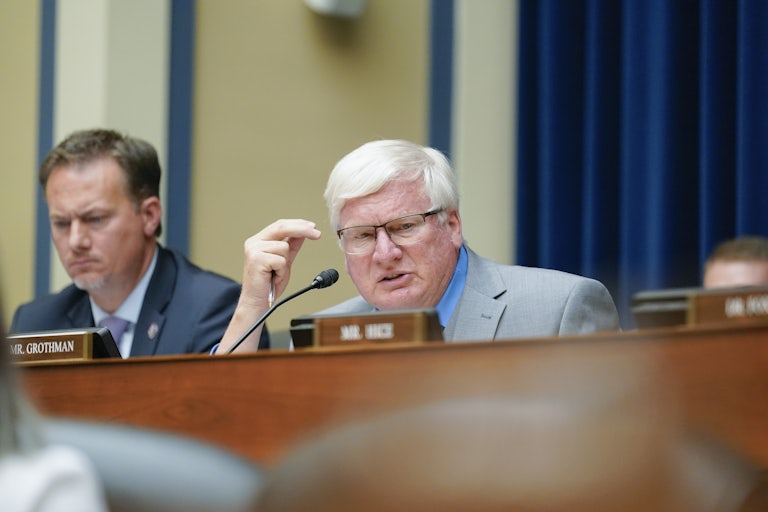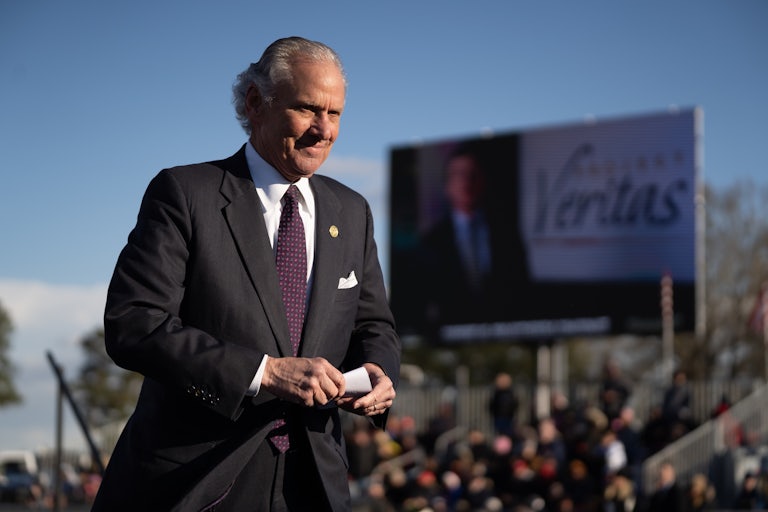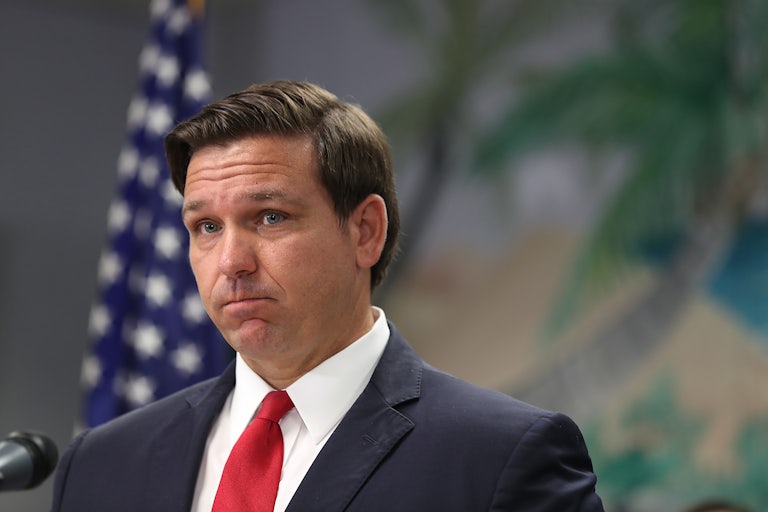GOP Lawmaker Complains That Biden Isn’t Picking Enough Straight, White Male Judges
Glenn Grothman would like justice for straight white dudes.

On Thursday, Wisconsin Republican Representative Glenn Grothman used his time on the floor of America’s Capitol to complain that President Joe Biden has not nominated enough straight “white guys” as judges.
Wisconsin's finest Glenn Grothman is on the House floor right now complaining that Biden isn't nominating enough straight "white guys" as judges pic.twitter.com/mdTmqiToxQ
— Aaron Rupar (@atrupar) May 25, 2023
“Apparently in his first two years, President Biden had appointed 97 federal judges. Of the 97 federal judges, I was expecting maybe 25 or 30 were white guys, because I know President Biden wasn’t heavy on appointing more white guys,” Grothman started. “Five of the 97 judges were white guys,” he continued with a tinge of disgust. “Of those, two were gay. So, almost impossible for a white guy who’s not gay apparently to get appointed here.”
According to the American Constitution Society, over 68 percent of federal judges are white.
Still, it seems to Grothman that you can either be a straight white guy, or you’re everything else. And, well, he doesn’t seem to be a big fan of “everything else.”
In 2015, Grothman was one of 37 co-sponsors of a House resolution that defined marriage as “consisting only of the union of a man and woman.” The resolution prohibited either the Constitution or even states to be required to recognize marriages of “any other union.”
In 2012, Grothman said Kwanzaa is a fake holiday made up by a college professor and the libs. “Irresponsible public school districts such as Green Bay and Madison … try to tell a new generation that Blacks have a separate holiday than Christians.”
Grothman also has a tenuous relationship with Martin Luther King Jr. Day, arguing that public employees should be forced to work on the holiday. In 2018, at an event on the holiday itself, when asked about some of then-President Trump’s controversial comments—like ones about immigrants from African countries—Grothman offered a puzzling retort. “The past president brought Al Sharpton into the White House something like 80 times,” he told the college crowd. “That was kind of stunning to me, but nobody ever made a big ruckus out of it.”
The derangement goes beyond people’s social lives, into their economic ones.
In 2014, Grothman, then a state Senator, expressed disdain for a Wisconsin law that mandated businesses provide workers with “at least one period consisting of 24 consecutive hours of rest in each calendar week.”
“Right now in Wisconsin, you’re not supposed to work seven days in a row, which is a little ridiculous because all sorts of people want to work seven days a week,” he told HuffPost.
After he voted to repeal Wisconsin’s equal-pay protection law, Grothman said the wage gap wasn’t about workplace discrimination. “You could argue that money is more important for men. I think a guy in their first job, maybe because they expect to be a breadwinner someday, may be a little more money-conscious,” he told The Daily Beast.
Calling for restrictions on food stamps (sound familiar?), Grothman has also encouraged citizens to spy on food stamp recipients’ shopping carts, lest any person be lying about their need for help to buy groceries. He has previously written that some recipients do not look “genuinely poor” enough to be obtaining such benefits.








